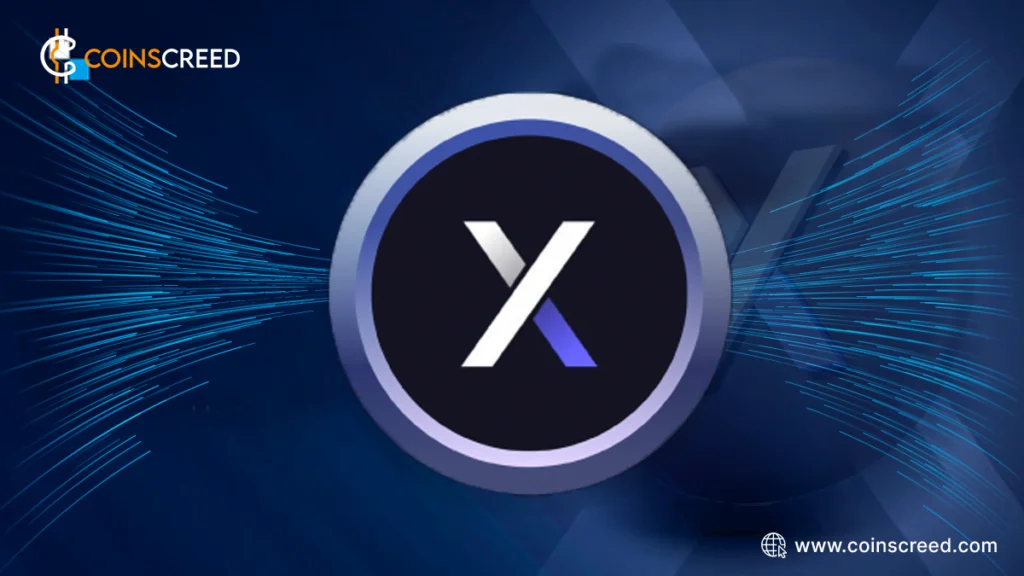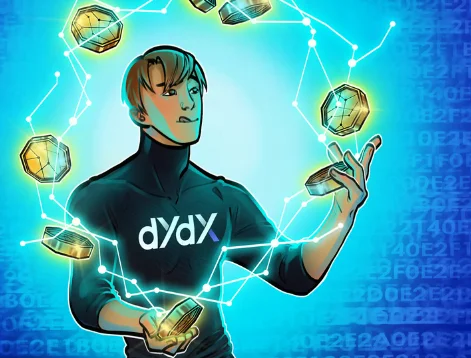Decentralized finance (DeFi) has revolutionized the traditional financial landscape by providing users with transparent, permissionless, and secure alternatives to conventional financial services. Within the DeFi ecosystem, decentralized exchanges (DEXs) facilitate peer-to-peer trading without intermediaries. One such standout among DEXs is the dYdX Exchange. This article will explore the top features of dYdX exchange that set it apart from other decentralized trading platforms.

What Is Decentralized Trading
Decentralized or decentralized exchange (DEX) trading refers to decentralized platforms built on blockchain technology. Unlike traditional centralized exchanges, which rely on intermediaries to facilitate transactions and hold users’ funds, decentralized trading operates in a peer-to-peer manner without intermediaries.
In decentralized trading, the trading process is governed by smart contracts, which are self-executing agreements running on a blockchain. These smart contracts automate various aspects of the trading process, such as order matching, settlement, and asset custody. By removing the need for intermediaries, decentralized trading platforms give users greater control over their funds, increased privacy, and reduced counterparty risk.
What Is A Decentralized Trading Platform
A decentralized trading platform, also known as a decentralized exchange (DEX), is a digital platform that enables peer-to-peer trading of digital assets in a decentralized manner. Unlike traditional centralized exchanges, decentralized trading platforms do not rely on intermediaries to facilitate transactions or hold users’ funds.
Decentralized trading platforms operate on blockchain technology, leveraging smart contracts to automate various aspects of the trading process. Smart contracts are self-executing agreements that run on a blockchain and define the rules and conditions for trading. These contracts facilitate order matching, asset custody, and settlement without a central authority.
Key Characteristics Of Decentralized Trading Platforms
The key characteristics of decentralized trading platforms include the following:
- Peer-to-Peer Trading
- Non-Custodial Model
- Blockchain-Based
- Permissionless Access
- Decentralized Governance
- Diverse Asset Listings
Peer-to-Peer Trading
Decentralized trading platforms allow users to trade directly with one another without relying on a centralized intermediary. Buyers and sellers can interact and execute trades through the platform, matching orders trustless.
Non-Custodial Model
Users always maintain control of their funds in a non-custodial decentralized trading platform. Funds are stored in users’ wallets, and trades occur directly between these wallets through the platform’s smart contracts, eliminating the need to trust a central authority with custody of assets.
Blockchain-Based
Decentralized trading platforms are built on blockchain networks, leveraging the underlying blockchain technology’s transparency, security, and immutability. Trades, orders, and transaction history are recorded on the blockchain, providing a transparent and auditable trading environment.
Permissionless Access
Anyone with an internet connection and a compatible digital wallet can access decentralized trading platforms. There are no barriers to entry or requirements for KYC (Know Your Customer) procedures, allowing users from around the world to participate.
Decentralized Governance
Some decentralized trading platforms implement decentralized governance models, where platform decisions and upgrades are made through community consensus. Users can participate in decision-making by voting on proposals, ensuring a more inclusive and community-driven platform.
Diverse Asset Listings
Decentralized trading platforms support a wide range of digital assets, including cryptocurrencies, tokens, and other digital representations of assets. Users can trade various assets without relying on a centralized authority’s approval or listing requirements.

Top Features of dYdX Exchange
Here are the top features of dYdX that set it apart from other decentralized trading platforms:
- Margin Trading
- High Liquidity
- Non-Custodial Trading
- Perpetual Contracts
- Competitive Fees
Margin Trading
One of the most noteworthy features of dYdX is its robust margin trading functionality. Unlike many other DEXs, dYdX allows users to trade on leverage, amplifying their trading positions and potentially enhancing their returns. With dYdX, traders can enter long or short positions, taking advantage of rising and falling markets. The margin trading feature dYdX provides sets it apart as a versatile platform that caters to experienced traders seeking higher leverage opportunities.
High Liquidity
Liquidity is a critical factor for any trading platform, and dYdX excels. It boasts a deep liquidity pool across various trading pairs, ensuring users can execute their trades promptly and at competitive prices. The high liquidity on dYdX is achieved through integration with multiple liquidity sources, including other decentralized exchanges and liquidity protocols. This depth of liquidity enhances trading efficiency, minimizes slippage, and makes dYdX an attractive platform for retail and institutional traders.
Non-Custodial Trading
dYdX adheres to the ethos of decentralization by offering non-custodial trading, which means that users always maintain control of their fumes, eliminating the need to trust a centralized third party with their assets. With dYdX, users retain ownership of their funds through smart contracts, ensuring a secure and transparent trading experience. The non-custodial nature of dYdX aligns with decentralization and self-sovereignty principles underpinning the DeFi movement.
Perpetual Contracts
Another standout feature of dYdX is its support for perpetual contracts. Perpetual contracts are derivative instruments that enable users to speculate on the price of an underlying asset without actually owning it. dYdX offers perpetual contracts for a range of cryptocurrencies, allowing users to trade and profit from the price movements of various digital assets. The availability of perpetual contracts on dYdX broadens the trading options for users and opens up new avenues for trading strategies.
Competitive Fees
While fees are a common consideration for any trading platform, dYdX offers competitive fee structures. dYdX employs a maker-and-taker fee model, where makers (those who add liquidity to the order book) are incentivized with lower fees. In comparison, takers (those who remove liquidity) pay slightly higher fees. This fee structure encourages users to provide liquidity, enhancing the platform’s overall trading experience. By maintaining competitive fees, dYdX attracts traders looking for cost-effective decentralized trading options.
Conclusion
dYdX Exchange stands out among decentralized trading platforms due to its impressive features and commitment to decentralization. With margin trading, high liquidity, non-custodial trading, perpetual contracts, and competitive fees, dYdX offers a comprehensive trading experience for novice and experienced traders. As DeFi continues to disrupt traditional financial systems, platforms like dYdX pave the way for a decentralized and inclusive financial future.
